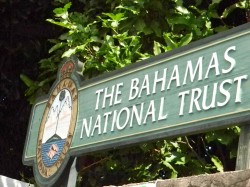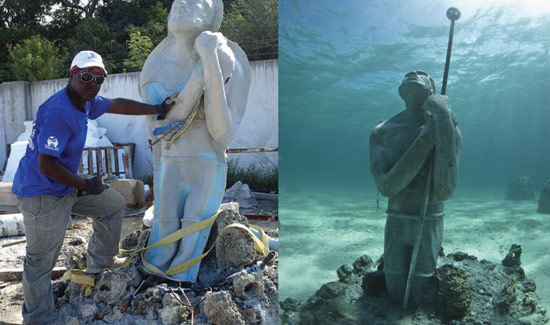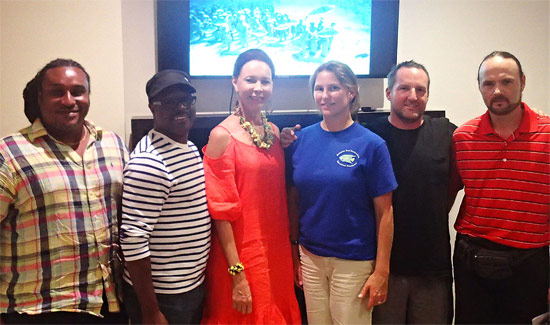 Planning natural resources expansion begins with the new, transformative, and progressive environmental legislation achieved during the 2010/2011 fiscal year. The Government identified that it could only execute the policies of the Act by strengthening the administration of the Department of Physical Planning.
Planning natural resources expansion begins with the new, transformative, and progressive environmental legislation achieved during the 2010/2011 fiscal year. The Government identified that it could only execute the policies of the Act by strengthening the administration of the Department of Physical Planning.
“The new Planning and Subdivisions Act is designed to protect the public’s interest as all potential developments will be required to undergo public scrutiny to ensure that developments to minimise negative impacts, maintain the potential capacity of the land by mandating guidelines to mitigate against destruction of the biodiversity of our island communities,” said Earl Deveaux, Minister of the Environment during the Budget Communication in the House of Assembly.
The Forestry Act was passed to legally protect the Bahamian Heritage and its future sustainable growth and development by reducing the intensity of land use in Agro-Forestry, conservation Forestry, Forest Reserve, Protected Forest, Wetlands, and management of terrestrial invasive plant species.
The two Acts are designed to work in tandem with the amendments to the Bahamas National Trust Act, which also marks the first revision of the organisation’s governing law in 51 years. The Forestry Unit will facilitate and implement its research headquarters at Adelaide Road for Bahamian and visiting scientists, students, and stakeholders.
The Bahamas National Geographic Information Systems (BGNIS) Centre, located behind the Lands and Surveys Building on East Bay Street, is funded to serve as the Government’s technical topography repository for geospatial data. They store satellite imagery maps and computerised models of the natural and artificial organisation of physical structure throughout The Bahamas. (BIS Photo / Gena Gibbs). “The Government of The Bahamas will cooperate with the BNT to implement the new Forestry Act. The amended Act empowers the BNT ‘to advise both the government and the private sector generally on development issues and policies; and conservation, environmental, biodiversity, natural and cultural heritage and resource management issues’,” said Dr. Deveaux.
“The Government enacted legislation to create the Forestry Unit to manage, conserve, control and develop forests, while promoting and regulating forest industries. A Memorandum of Understanding between the Government (through the Forestry Unit) and the Bahamas National Trust has been approved for the BNT to administer $100,000 for BNT wardens to serve as Forest Officers.”
The Forestry Unit has partnered with Lindor Industries to expand the value of Bahamian products, which would strengthen our economy by stimulating a revenue stream of royalty fees, permits, leases and license fees for using forest produce and non-timber forest produce. They plan to create sustainable opportunities for forest restoration by incorporating several services of smaller complementary industries.
“The Forestry Unit is presently reviewing applications to harvest timber from several Bahamian forests. In keeping with its strategy, the Forestry Unit signed an agreement with Lindor Industries to create valuable floorboards and ceiling boards from Bahamian pine,” said Dr. Deveaux.
“Our pine trees are among the fastest growing in the world. They are also uniquely hard and beautiful. However, only the larger trees are required. So, rather than high-grading the forests to get only the valuable trees, and continue with the problem of poor management and inferior specimens; we have formulated a partnership to extract all the undesirable specimens, using them to make charcoal, mulch, and posts, while leaving selected specimens for regrowth and accommodating Lindor’s demand for the larger trees.”
The Port Department administers the registry of over 60,000 vessels, mailboats, pleasure crafts, commercial boats, and ferry and freight boats, jet skis, and foreign boats charters, for docks and marinas, and cargo facilities. The port will upgrade the CCTV security monitoring systems at Prince George Wharf Harbour facilities, upgrade bollards and concrete coping beams, paint structures, erect Potter’s Cay Dock signage, protect water meter devices, remove derelict vehicles from harbours, and debris on seabeds of cruise piers. (BIS Photo / Gena Gibbs)The BEST Commission has audited and monitored the various environmental activities and EMP adherence to national and international standards of ongoing projects such as Ginn Sur Mer, Lynden Pindling International Airport, The Nassau Harbour Port Improvement Project, Bahamas Waste Biodiesel Facility, Baha Mar, and Bell Island.
During 2011/2012, the Commission will have oversight of projects such as the new port, bypass road, and causeway bridge between Great Abaco and Little Abaco, the Glass Window Causeway in Eleuthera, the new port and bypass road in Exuma, as well as the Baha Mar project and the New Providence Infrastructural Rehabilitation Project.
The BEST Commission is also responsible for the National Energy Policy and its Committee. They are working closely with the Inter-American Development Bank (IBD) on the aggressive compact fluorescent light bulb (CFL) distribution campaign to encourage Bahamians to save energy by changing their behaviour.
The Environment Ministry is collaborating on legislation to provide incentives to stimulate the use of renewable energy.



